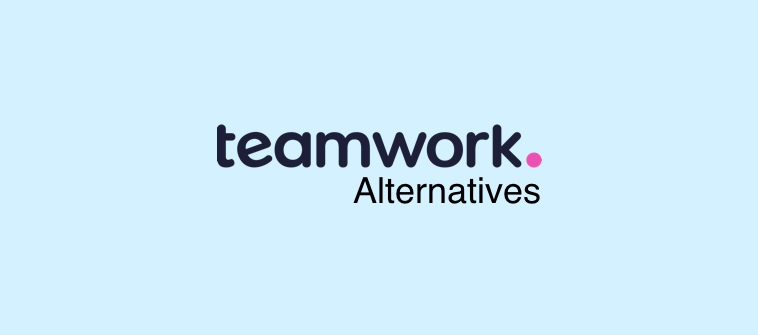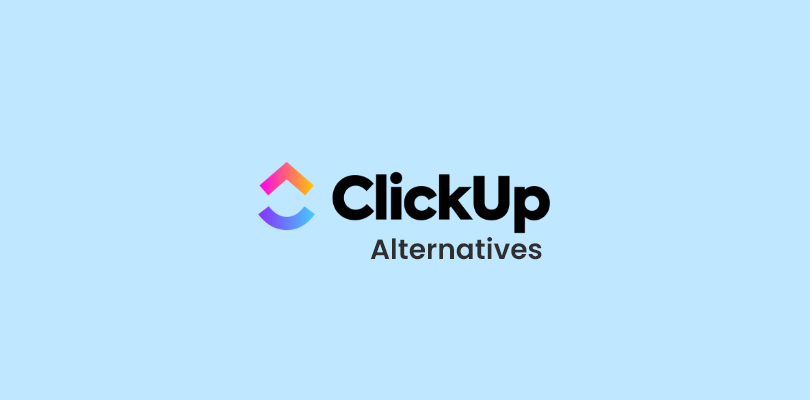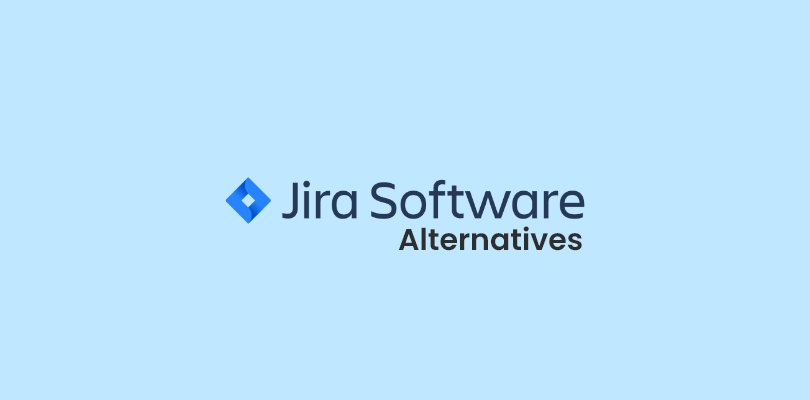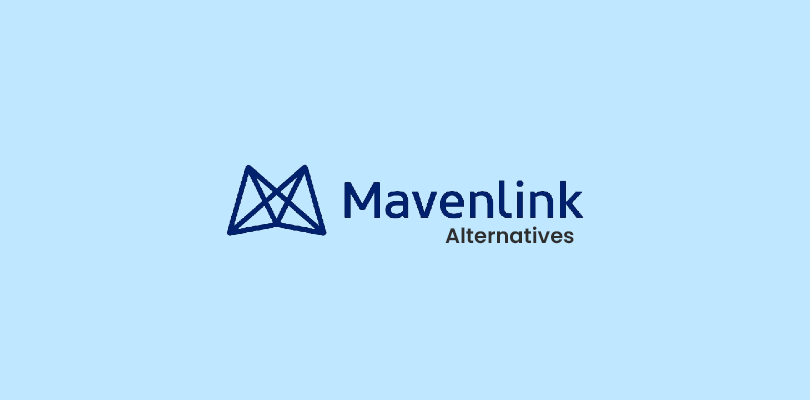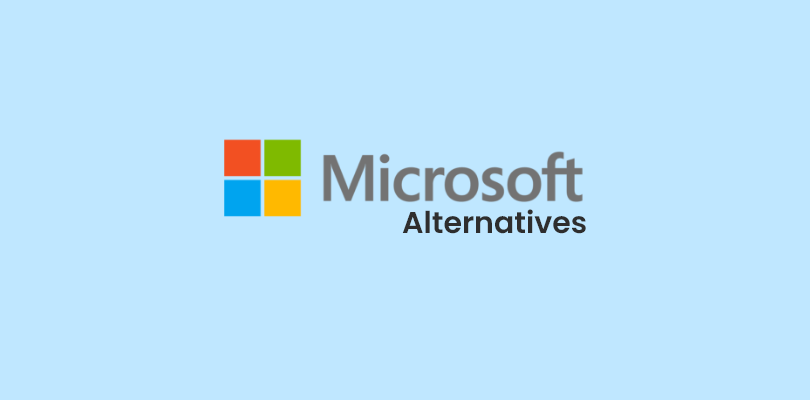Podio has long been a popular choice for online communication and collaboration.
But does that compensate for its project management feature limitations compared to some of the most chosen Podio alternatives?
It depends on how much you’re willing to sacrifice. If you ask me, well, you’d be surprised to know a lot of competitors offer better value, even at a similar or lesser price.
So, if you’re ready to give one last shot, I’ve compared the 15 best project management alternatives to Podio in this blog.
Before we get to business, here are the tool names –
| Podio Alternatives | Best For | Pricing Starts From |
| ProProfs Project | Planning, Collaborating & Delivering Projects on Time | Forever Free for small teams.Paid starts at $39.97/month/unlimited users |
| ProofHub | Built-in Proofing Tools | $79/month/10 users |
| Slack | Team Communication & Collaboration | $7.25/month |
| Bitrix24 | Remote Task Management | $49/month/5 users |
| Asana | Strategic Project Planning | $10.99/user/month |
| Adobe Workfront | Portfolio Planning | Custom Pricing |
| monday.com | Managing Project Resources | $27/month/3 seats |
| Wrike | Automating Administrative Workflows | $10/user/month |
| Trello | Workflow Automation | $5/user/month |
| ClickUp | Generating Detailed Reports | $7/user/month |
| Notion | Building Product Roadmaps | $10/seat/month |
| Basecamp | Remote Work Collaboration | $15/user/month |
| Teamwork.com | Client Management | $10.99/user/month(3 users minimum) |
| Smartsheet | Real-Time Project Collaboration | $9/member/month |
| Jira Software | Project Issue Tracking for Developers | $8.15/user/month |
What Is Podio?
Podio is a cloud-based collaboration software that helps you organize work, communicate more effectively, and manage business processes.
The software is highly customizable and allows you to build your own tools or choose from a variety of pre-built apps to manage projects, track sales, and more.
(Image source: G2)
Podio is used by a wide range of teams and organizations in project management, sales, marketing, HR, etc.
Podio Pricing
Podio’s pricing is structured around a per-user, per-month model, and they offer different tiers to accommodate various needs and budgets.
Here’s a detailed price breakdown –
- Plus: $11.20 per user per month (billed annually).
- Premium: $19.20 per user per month (billed annually).
- Custom: Custom pricing for larger organizations with specific needs.
Apart from these, the software also has a free plan that is limited to up to five users. Note that this free plan comes only with basic task management, apps and workspaces.
(Image source: Podio)
Why Do You Need an Alternative to Podio?
I’d keep things as brief as possible here, assuming if you’re looking for an alternative to Podio, you already know these. Here are some of the reasons to shift to a different software –
- Highly Customizable, But…: Podio is customizable, which is great, but figuring out how to set up your workspaces and apps can be a real headache. It takes time and patience, and if you’re not tech-savvy, you might find it frustrating.
- Not Good for in-Depth Reports: You get some basic info, but it lacks the detail you need to analyze your projects in detail. If you need in-depth insights, you’ll probably need to export the data and work on it in another tool.
- Lags Behind Sometimes: Podio can get slow, especially when managing large projects or lots of data. This can be a real drag when trying to get things done quickly.
- Pricing: I wouldn’t say the pricing is high compared to its competitors, but the free plan disappointed me. You’ll see the difference when you compare it against ProProfs Project, Bitrix24, or even Notion.
For example, if you see ProProfs Project’s free plan, it offers EVERYTHING. No feature or storage restrictions for micro teams. In my opinion, that’s great for small businesses looking to try things out.
(Image source: ProProfs Project)
| Looking for the Top 3 Picks From the List?So, which are the best Podio alternatives that deserve the crown? Here, have a first look at the tools that I think are the best –ProProfs Project: This one is a good fit if you’re looking for easy-to-understand software with time tracking, billing, and portfolio management—all available in the free plan. With built-in reporting and collaboration, it’s an all-in-one tool for startups and SMBs transitioning from Podio.Notion: This is a capable alternative for structuring product roadmaps. It combines notes, databases, and timelines. Its flexibility in creating custom templates and linking objectives to tasks simplifies managing complex projects.Slack: It stands out with project-specific channels, real-time chats, and threaded discussions for clear communication. Task status updates and automated responses keep teams informed seamlessly.For a detailed review of these tools, check my full comparison below. |
List of the 15 Best Podio Alternatives
Over the last few months, I connected with several industry experts (project managers, team leads, CEOs, VPs) to know their preferences when choosing a project management platform.
I also verified if they would choose the same platform(s) when shifting from Podio. These insights helped me prepare this exhaustive list of tools.
And after that, it was all about personal experience, incorporating user reviews and feedback to draft this comparison.
Let’s begin.
1. ProProfs Project – Best for Planning, Collaborating & Delivering Projects on Time
Watch: What Is Project Management? How to Manage Projects Online With ProProfs Project
ProProfs Project is geared towards startups and SMBs looking for an easy-to-use project management software platform without sacrificing core functionalities.
Having used it myself, I appreciate how it organizes projects with clear timelines, task dependencies, and Gantt charts. What should surprise you is that the software even packs advanced features like time tracking, billing, resource planning, and portfolio management – all in the free plan.
In my opinion, that’s a delight for small businesses shifting from Podio! Apart from these, you also get project reporting for a 360° overview of progress without extensive setup.
So, my verdict for ProProfs Project is that it’s easily one of the best Podio alternatives if you’re looking for a feature-rich software that lets you test everything before committing to an investment.
What You’ll Like:
- Real-time team collaboration with file-sharing, in-app discussions, @mentions, etc.
- Tracks billable and non-billable hours for client billing processes
- Real-time email notifications and reminders to stay updated on project changes
- Expert-designed templates to get started quickly with new projects
- Integrates with ProProfs suite of tools and third-party software using API
What You May Not Like:
- Dark user interface option is not available
- No dedicated account manager for the free plan, unlike paid
Pricing: Forever Free for small teams. Paid options start from $39.97/month.
2. ProofHub – Best for Built-in Proofing Tools
(Image source: ProofHub)
ProofHub is a cloud-based project management solution that simplifies feedback and collaboration with built-in proofing tools.
When I tested it, the markup and annotation features seemed practical to me. Your team members could comment directly on designs and documents, which make revisions seamless. Also, this cuts down on endless email threads and version confusion.
The software also supports task management essentials like due dates, custom workflows, and time tracking, so you’re not jumping between platforms. Overall, its proofing tools make it especially valuable for creative teams or marketing departments.
What You’ll Like:
- Team announcements for efficient communication and updates
- Ready-made templates for quick project initiation
- Online forms for seamless data collection
- Custom roles and permissions for enhanced project security
- Mobile app access for project management on the go
What You May Not Like:
- Some teams have experienced difficulties with intra-team collaboration and communication
- No white-labeling in the base plan
Pricing: Starts at $45/month.
3. Slack – Best for Team Communication & Collaboration
(Image source: Slack)
Slack is widely recognized as a leading communication platform. So, how does it fair as a Podio alternative?
Well, it lets you create dedicated channels for different projects, share files, and have real-time conversations. Its threaded discussions reduce noise, making project conversations clear and actionable. You can organize channels and keep conversations topic-specific.
It’s easy to share files, ping teammates, and get instant feedback. But the feature I liked most was setting status updates and automating responses. It keeps everyone informed without constant checking.
What You’ll Like:
- Searchable history makes it easy to find past conversations and files
- Direct messaging enables quick communication with individuals
- Video and voice calls facilitate real-time collaboration and discussion
- Guest accounts enable collaboration with external stakeholders
- Slack Connect to collaborate with external teams in a shared workspace
What You May Not Like:
- No workflow builder in the free plan
- Some users feel that the onboarding process could be better structured with more in-depth guidance
Pricing: A free plan is available with limited days of message history. Paid options start from $4.38/month.
4. Bitrix24 – Best for Remote Task Management
(Image source: Software Advice)
Bitrix24 is an all-in-one platform designed for remote teams. I’ve seen it work well for managing tasks across various time zones.
The tool’s task management features include project timelines, checklists, and task dependencies. I found that its built-in communication tools, such as video calls and chat, make it easier to collaborate without needing external apps.
Also, setting task reminders and notifications keeps you on track. Overall, it’s a decent alternative to Podio, especially if you have a remote team.
What You’ll Like:
- Multiple task views for flexible project visualization and management
- Workload management for balanced task distribution and team optimization
- Project grouping for improved organization and project segmentation
- Customizable reports for in-depth project analysis
- CRM integration for a unified view of customer data and project activities
What You May Not Like:
- Only 5 GB of storage allowance in the free plan
- Some users have reported difficulties in tracking the overall status of multiple projects
Pricing: A free plan is available with a limited storage allowance. Paid options start from $49/month/5 users.
5. Asana – Best for Strategic Project Planning
(Image source: Asana Academy)
Asana is ideal for teams that need a structured approach to strategic project planning. When I worked with it, I liked the visual clarity it provided through Gantt charts and task timelines.
With Asana, you can easily map out projects, set company-wide goals, manage strategic plans, and get work done. It lets you connect work to company-wide goals to make better decisions faster with real-time data.
The software’s workload balancing tool helps prevent resource overload, which is crucial for long-term project planning.
What You’ll Like:
- Custom fields for tailored information tracking within projects
- Project templates for project setup and standardization
- Project portfolios for high-level oversight and progress monitoring
- Built-in approvals for efficient review and approval processes
- Custom rules for automated actions and reduced errors
What You May Not Like:
- Some users reported the document and file management capabilities could be improved
- No project dashboards in the free plan
Pricing: A free plan is available for up to 10 teammates. Paid options start from $6.92/user/month.
6. Adobe Workfront – Best for Portfolio Planning
(Image source: Adobe Experience League)
Adobe Workfront excels at portfolio-level project management. So, you get a hint that it’s a Podio alternative if your project team juggles multiple large-scale projects.
I’ve found the software maps out priorities and resources pretty well. Its customizable dashboards and reporting tools make it simple to monitor progress across several projects at once.
One of its strengths is integrating workload and capacity planning, which enables quick resource adjustment to meet deadlines. For teams needing to coordinate complex projects within a cohesive portfolio, Adobe Workfront provides the necessary structure.
What You’ll Like:
- Financial management tools for budget control and analysis
- Resource forecasting for proactive resource allocation and skill matching
- Issue tracking and resolution for problem-solving
- Content review and approvals for collaboration and quality assurance
- Creative Cloud integration for seamless connection with Adobe’s creative suite
What You May Not Like:
- Pricing is not transparent
- Some users reported the tool sometimes struggles with handling large volumes of tasks and data
Pricing: Custom pricing.
7. monday.com – Best for Managing Project Resources
(Image source: monday.com)
monday.com is a solid choice for teams focused on resource management and optimizing project timelines.
From my experience using it, I noticed how easily teams can allocate resources by visualizing workloads and deadlines. Its visual interface—with boards, charts, and timelines—provides an easy overview of ongoing projects.
The software also helps you assign tasks, track progress, and get real-time updates on your team’s work. The only thing I dislike slightly is the flexibility of the pricing plan. There’s a set minimum user limit, which may or may not be something micro teams would like.
What You’ll Like:
- Time tracking for monitoring of work hours and project timelines
- Dependency management to ensure tasks are completed in the proper sequence
- Customizable notifications for timely updates and communication
- Mobile accessibility for managing projects from anywhere, at any time
- Pre-built templates for various project types and use cases
What You May Not Like:
- Paid plans require purchasing for at least 3 users
- Some users have mentioned the tool lacks seamless cross-referencing between different boards and projects
Pricing: A free plan is available for up to 2 seats. Paid options start from $27/month/3 seats (at $9/seat).
8. Wrike – Best for Automating Administrative Workflows
(Image source: Wrike)
Having worked with Wrike, I appreciate how its automation capabilities reduce time spent on repetitive tasks like assigning tasks, sending notifications, and generating reports.
The tool helps you manage workflows by setting triggers for routine updates or task assignments. It works in the background to sync related tasks without requiring you to update other projects and tasks.
Wrike’s task management features and detailed reporting tools give you an overview of project health. The automated notifications and customized templates make coordinating complex projects much simpler.
What You’ll Like:
- Gantt charts for project scheduling and real-time progress tracking
- Kanban boards for flexible workflow visualization
- Resource management for efficient workload balancing
- Custom request forms for information gathering and intake processes
- Proofing and approval tools for review and approval of creative assets
What You May Not Like:
- Only 2 GB storage space per account in the free plan
- Some users feel the software isn’t the best option if you want in-depth project analysis
Pricing: A free plan is available with limited storage space. Paid options start from $10/user/month.
9. Trello – Best for Workflow Automation
(Image source: Trello)
One of the best alternatives to Podio for workflow automation, Trello is a capable project management tool. With customizable templates, you can build your team’s ideal workflow, whether working on a small or big project.
But what sets the software apart is its workflow automation feature called “Butler.”
From creating rules that instantly run a set of actions when triggered by a defined action to buttons that run actions on a card – it can do it all. You can also use due date commands that run in relation to approaching or past due dates, calendar commands that run at set calendar intervals, etc.
What You’ll Like:
- Labels and tags for better organization and categorization of tasks
- “Power-Ups” (add-ons) to add more functionality to boards
- Commenting and activity tracking for team collaboration
- Deadline tracking and reminders for efficient project scheduling
- Notifications and alerts to stay updated on project changes
What You May Not Like:
- No custom fields or dashboard views in the free plan
- Some users have expressed that it lacks the flexibility required for intricate workflow adaptations
Pricing: A free plan is available for up to 10 boards per workspace. Paid options start from $5/user/month.
10. ClickUp – Best for Generating Detailed Reports
(Image source: ClickUp)
ClickUp’s customizable reports provide clarity on everything from timelines to team productivity.
The first thing I liked was the ability to tailor dashboards with widgets that show real-time data. This meant I could monitor task statuses across various projects without toggling between screens.
The wide range of reporting tools allows you to create visual summaries and deep-dive analyses. Whether you’re looking for high-level overviews or granular details, the software covers all bases.
It’s a good alternative to Podio, especially if you’re after detailed reporting.
What You’ll Like:
- Multiple views, including list, board, Gantt, calendar, etc.
- Goals to set targets at the workspace, team, and individual levels
- ‘Mind Maps’ for visualizing project plans in a non-linear format
- Docs for collaborative document creation and knowledge sharing
- Templates for various project types and use cases
What You May Not Like:
- No resource management or time tracking in the free plan
- Several reviewers noted that the software often experiences bugs, which can reduce overall productivity
Pricing: A free plan is available with limited file storage space. Paid options start from $7/user/month.
11. Notion – Best for Building Product Roadmaps
(Image source: Notion)
Notion can be your go-to Podio alternative for structuring product roadmaps.
I like how it combines notes, databases, and timelines into a cohesive project view. It’s flexible when creating custom templates tailored to different product stages. The ability to embed relevant documentation and link project goals to actionable tasks made managing complex roadmaps far more straightforward.
In addition, you can easily create custom templates and link project objectives to actionable tasks, which simplifies the tracking process.
What You’ll Like:
- Kanban boards for a visual overview of tasks and their progress
- Progress bars visualize the completion status of projects and individual tasks
- Filters and sorting options to quickly find the information you need
- Customizable views to tailor the workspace to your preferences
- Reminders help you stay on top of deadlines and important tasks
What You May Not Like:
- No charts and dashboards in the free plan
- Users have mentioned challenges with maintaining consistent formatting across different documents
Pricing: A free plan is available for up to 10 guest invites. Paid options start from $10/seat/month.
12. Basecamp – Best for Remote Work Collaboration
(Image source: Basecamp)
Basecamp drives small teams to their goals. Sounds pretty generic, right? Let’s get into the details.
First things first, you’ll find its “Card Table” features a unique take on Kanban-style boards. They simplify project stage tracking. You also get ‘Hill’ charts for a clear visual representation of project progress.
However, I think Basecamp truly excels in remote collaboration.
With real-time chat, document sharing, and scheduling, it’s a decent choice for remote teams. Each project lives on one unified page, with everything in reach and every piece of information organized.
What You’ll Like:
- Message boards for team communication and discussions
- To-do lists for assigning tasks, tracking progress, and managing responsibilities
- Campfires for real-time group chat and informal discussions
- Automatic check-ins for regular feedback and project alignment
- Client access for increased transparency and collaboration
What You May Not Like:
- The basic plan may not be ideal for growing teams
- Some users miss having pre-built templates for project management
Pricing: Starts at $15/user/month.
13. Teamwork.com – Best for Client Management
(Image source: Teamwork.com Support Center)
If you’re looking for affordable Podio alternatives, Teamwork.com can be a good option. It is also one of the best tools on the list that can help you in client operations. Let’s talk about it.
The platform is the go-to spot for managing clients and ensuring oversight across all their projects. You can keep your growing client portfolio updated and organized to focus on delivering quality work.
Using Teamwork.com, I could understand the state of play across all projects linked to a client. You can also see rolled-up project totals of the most vital metrics to understand the big picture, all under one roof.
What You’ll Like:
- Multiple project views for visualizing work in various formats
- Time tracking for accurate monitoring of task and project time
- Workload management for optimizing team capacity
- Project templates for streamlined project setup and consistency
- Risk register for proactive identification and management of project risks
What You May Not Like:
- No resource management and timesheets in the free basic plan
- Users pointed out that the recurring task functionality could be improved
Pricing: Starts at $10.99/user/month (3 users minimum).
14. Smartsheet – Best for Real-Time Project Collaboration
(Image source: Smartsheet)
Smartsheet brings an effective approach to project management with its spreadsheet-like interface.
When I used it, I noticed its flexible grid format allowed for clear task tracking, allocation, and progress updates. Teams can collaborate in real time, making editing and sharing feedback possible within project sheets. This minimizes the need for back-and-forth communications.
The platform’s automation capabilities, such as reminders and notifications, helped keep tasks on schedule without manual follow-ups. Smartsheet delivers a solid, collaborative experience if you want to enhance transparency and maintain momentum.
What You’ll Like:
- Forms for managing data from various sources
- Activity logs for tracking changes and maintaining a project history for auditing
- Project and portfolio management for organizing projects at scale
- Process management for automating complex workflows across teams
- Custom branding to personalize your Smartsheet workspace
What You May Not Like:
- No team workload tracking or timeline view in the basic plan
- Users have commented on difficulties finding documents and specific tasks, hinting at issues with the search functionality
Pricing: Starts at $9/member/month.
15. Jira – Best for Project Issue Tracking for Developers
(Image source: Atlassian)
Jira supports agile methodologies, including Scrum and Kanban. This makes sprint planning and backlog grooming easier. You can easily assign tasks, monitor progress, and prioritize bugs or new features in real-time.
The software’s reporting features, such as burndown charts and velocity tracking, helped maintain clear visibility into team performance and project health.
Jira is a reliable and thorough choice for development-focused projects requiring structured issue management and progress tracking.
What You’ll Like:
- Roadmaps for planning and tracking progress toward high-level goals
- Customizable workflows to match your team’s specific processes
- Reporting and dashboards for gaining insights into project performance
- Integrations with popular tools like Bitbucket, Confluence, and Slack
- Custom fields for tracking project-specific information
What You May Not Like:
- No user roles and permissions or external collaboration in the free plan
- Some users noted that the volume of notifications can be excessive and hard to manage effectively
Pricing: A free plan is available for up to 10 users. Paid options start from $8.60/user/month.
Evaluation Criteria
When reviewing these project management alternatives to Podio, I followed a systematic approach to ensure you’re getting a fair, insightful, and well-rounded review. Here are the six key factors I considered –
- User Reviews / Ratings: I always check out what other existing users say, including ratings and feedback from reputable sites. This helps me understand the overall satisfaction level and any potential issues.
- Essential Features & Functionality: A tool’s value boils down to its core features and how well it functions overall. I’ve examined these aspects deeply to evaluate each tool’s practical usefulness.
- Ease of Use: I’ve considered how user-friendly each product is, paying attention to design, interface, and navigation. After all, a tool is only as good as its ability to be easily used.
- Customer Support: I’ve also looked at the quality of customer support, considering its efficiency and how well it assists users with setup, troubleshooting, and resolving issues.
- Value for Money: I’ve evaluated value by comparing the quality, performance, and features offered with the cost. The aim is to help you determine if you’re getting your money’s worth.
- Personal Experience / Expert’s Opinion: Finally, I’ve incorporated my personal experiences, insights, and opinions from industry experts. This should provide a comprehensive evaluation.
Final Thoughts
Choosing the right project management software is crucial to ensure your team uses the right platform to manage and deliver tasks within deadlines. But how do you know which of the Podio alternatives is the best for you?
It’s simple. You already have cues from this blog. That means you already know which are the best tools, the other options, as well as the pros and cons of each option.
The next step is to test the most relevant software options for your business needs.
For example, ProProfs Project offers a free plan, which lets you experience the platform with your team without paying a penny. All you have to do is sign up and get started.
Once you try a few tools, you’ll better understand which fits your business workflows best. Good luck!
Learn More About Best Podio Alternatives
What is better than Podio?
All the tools listed in the blog are better than Podio in one way or another. For example, ProProfs Project takes the lead above Podio with its user-friendly visual interface, an all-inclusive free plan, and advanced features like portfolio management, time-tracking, billing-invoicing, etc.
What is the disadvantage of Podio?
While Podio offers flexibility for customization, it can have a steep learning curve and may require time to set up and configure effectively. This can be a drawback for teams who need a quick and easy-to-implement solution.
For more detail, slide up to the top of the blog, where I have discussed some of the issues I faced.
Is there a free version of Podio?
Yes, Podio has a free plan for up to five users. However, the free plan limits most project management features. It only comes with basic task management, apps, and workspaces.
Does Citrix own Podio?
Yes, Citrix acquired Podio back in 2012.
FREE. All Features. FOREVER!
Try our Forever FREE account with all premium features!
